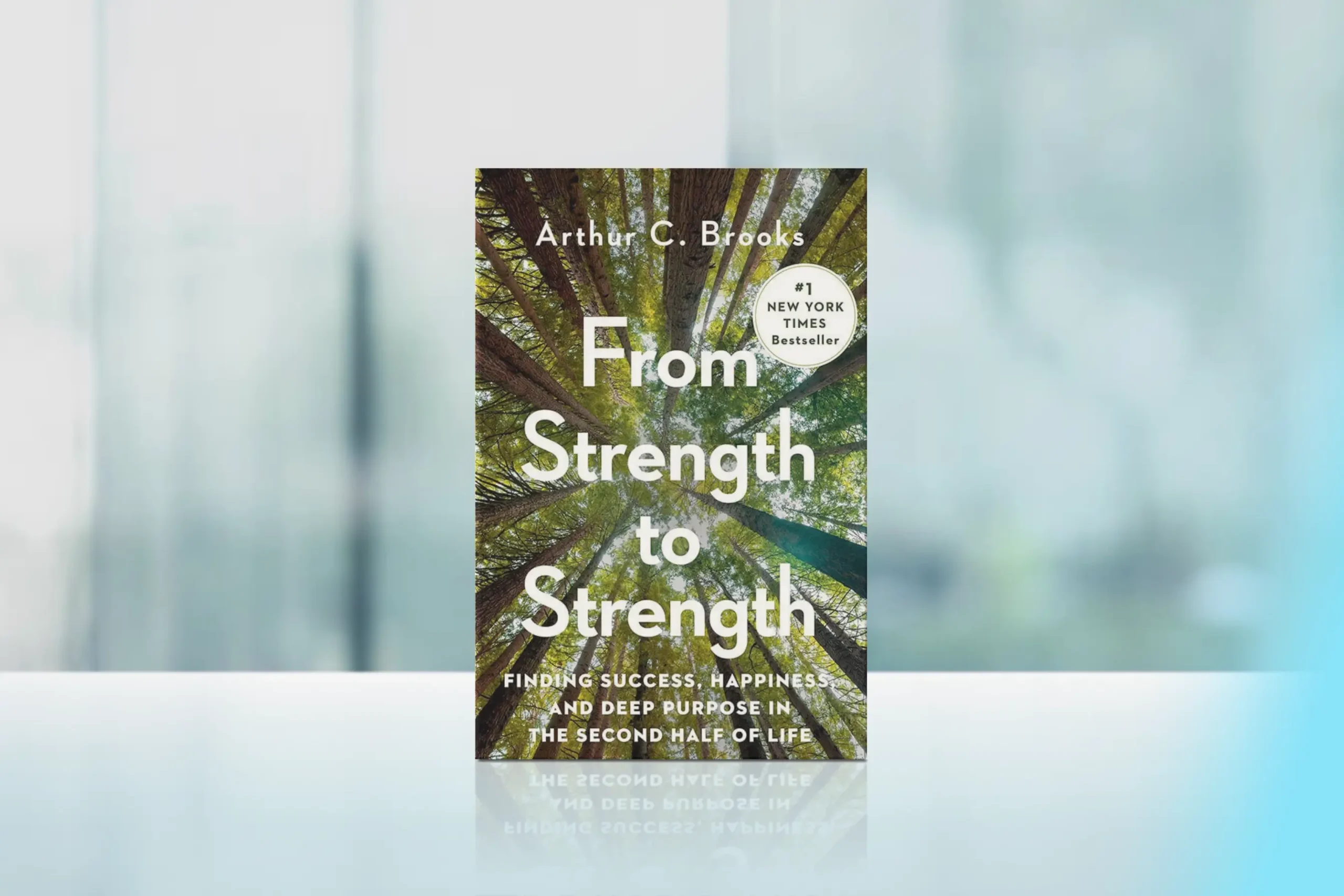Finding the right answers always begins with the right questions. Only when you dare to ask yourself the deeper, more powerful questions can you help discover your life’s purpose. In this article, we’ll explore 10 thought-provoking questions that can help you find your purpose and create a more meaningful life aligned with your true values and strengths.
Inside this article:
1. If money didn’t matter, what would you do?
This question helps you bypass the practical constraints that society places on career choices and life direction. By removing financial considerations, you create space to explore authentic motivations beyond survival needs. This reveals aspirations you might have set aside due to practical concerns about earning a living or meeting responsibilities.
Why this matters: Viktor Frankl, in his book “Man’s Search for Meaning,” shows how people maintain resilience when connected to purpose, even in extreme circumstances. When financial concerns are set aside, we uncover what truly matters to us – revealing intrinsic values rather than externally imposed priorities.
Quick experiment: Set a timer for 10 minutes and write without stopping about what you’d do with your life if money were no object. Notice which possibilities create enthusiasm or resonance.
2. When do you lose track of time?
Think about those moments when you look up and hours have passed in what felt like minutes. These states of complete absorption – what psychologists call “flow” – point toward activities aligned with your natural abilities and interests, serving as signposts along your purpose path.
Why this matters: Mihaly Csikszentmihalyi’s research shows people experience their highest fulfillment when absorbed in challenging yet enjoyable activities. These flow states reveal what naturally draws you in, making them reliable indicators of purpose-aligned activities.
Reflection activity: For one week, note any activity where you lost track of time. Record not just the activity but the specific elements that captivated you – was it solving problems, creating, connecting with others, or exploring ideas?
3. How have hard times shaped you?
The challenges you’ve faced aren’t merely obstacles but potential directional signs on your purpose path. Your wounds and difficulties develop unique perspectives and strengths that often become the very tools you use to create meaning. This question explores how struggles transform into understanding, empathy, and wisdom.
Why this matters:Research in post-traumatic growth shows many people discover deeper meaning through difficult experiences. Richard Leider explains in “The Power of Purpose” how suffering becomes a compass, directing us toward ways to help others facing similar challenges.
Simple practice: Identify a significant challenge you’ve navigated. Write down three strengths or insights you gained, and consider how these might serve others.
4. Who inspires you, and why?
The people who inspire you serve as mirrors reflecting values and qualities you hold dear. By examining what draws you to certain role models, you’ll find breadcrumbs leading toward your own calling and character aspirations.
Why this matters: James Hillman’s work in “The Soul’s Code” suggests we’re naturally drawn to those who express elements of our own calling. Your admiration highlights values that resonate with your deeper self, often revealing what you’re meant to develop or express.
Action step: Choose three people you deeply admire and list the specific qualities you admire in each. Look for common themes – these patterns reveal core values that matter deeply to you.
5. What did you love as a child?
Before adult expectations and responsibilities accumulated, what naturally drew your interest? Childhood enthusiasms contain clues about your authentic interests and talents. This question helps you rediscover joy-filled activities you may have abandoned for more “practical” pursuits.
Why this matters: Elizabeth Gilbert suggests in “Big Magic” that curiosity provides a more accessible path to purpose than waiting for passion. Your childhood interests reveal what naturally engages you, before external expectations shaped your choices.
Memory exploration:Identify activities that completely absorbed you as a child. Look for the underlying attractions – was it exploration, helping others, building things, or understanding how things work?
6. What’s your perfect day?
This question reveals your ideal rhythms, environments, and relationships – the settings in which you thrive. Unlike the money question that focuses on work and contribution, this explores the overall life context that supports your wellbeing and brings you consistent satisfaction.
Why this matters: Ken Robinson proposes in “Finding Your Element” that purpose emerges at the intersection of aptitude and passion. By visualizing your ideal day, you identify environments and interactions that energize rather than drain you.
Visualization exercise: Write a description of your perfect ordinary day. Focus on your surroundings, the people present, your day’s pace, and the balance between activities. What environments support your best self?
7. What problems do you want to solve?
The challenges that naturally capture your attention reveal what you’re drawn to improve or transform. Whether large societal issues or everyday frustrations, the problems you notice and care about solving offer direct clues about potential purpose directions.
Why this matters: Adam Grant highlights in “Think Again” that purpose develops when we direct skills toward solving problems we care about. Your natural problem-solving instincts guide you toward your unique contribution.
Curiosity prompt:List three problems that repeatedly capture your attention. For each, note what specifically bothers you and what improvement you envision. What patterns emerge?
8. What might you regret not doing?
By projecting yourself to life’s end and looking back, you gain perspective that cuts through daily distractions. This future viewpoint often brings remarkable clarity about priorities that matter most across a lifetime, helping you navigate fork-in-the-road decisions.
Why this matters: Palliative care nurse Bronnie Ware documented in “The Top Five Regrets of the Dying” that the most common regret among dying patients was not living true to oneself. Research confirms we typically regret inaction more than action over the long term.
Reflection question: Complete this sentence: “At the end of my life, I would regret never having…” Note which responses create the strongest emotional response.
9. What comes naturally to you?
Your innate abilities – especially those you take for granted – can be key indicators of your purpose path. These aren’t always dramatic talents but often subtle strengths that feel so normal to you that you assume everyone possesses them. Yet these very capabilities might form the foundation of your unique contribution.
Why this matters: Research shows people who regularly use their signature strengths experience greater wellbeing. Tom Rath explains we’re typically blind to our natural talents because they feel effortless. What comes easily to you may create the most value for others.
Perspective gathering:Ask three people from different areas of your life what they think you do exceptionally well, particularly skills that seem to come naturally to you.
10. How do you want to be remembered?
Considering your desired legacy illuminates core values and aspirations beyond achievement or recognition. This question explores the difference you hope your life makes – the impact and influence that would represent a life well-lived according to your deepest values.
Why this matters: Parker J. Palmer suggests in “Let Your Life Speak” that purpose isn’t invented but discovered by listening to your life. Your desired legacy reveals what matters enough to leave as your mark on the world.
Writing invitation: Draft a brief remembrance focusing on your impact on others and what you stood for. What would represent a life aligned with your truest values?
Connecting the Dots: How to Integrate Your Insights
Finding your purpose resembles following breadcrumbs along a forest path rather than discovering a treasure map with X marking the spot. The questions we’ve explored create a constellation of clues that, when connected, reveal patterns pointing toward your purpose.
Here’s how to synthesize what you’ve discovered:
- Look for recurring themes: Review your answers across all questions and highlight repeated words, concepts, or feelings.
- Notice your energy levels: Which questions sparked the strongest emotional response? Energy signals importance.
- Identify tension points: Where do your answers seem to conflict? These tensions often reveal important values that need integration.
- Create a purpose statement: Based on the patterns you’ve identified, write a single sentence that captures the essence of your purpose direction.
As Oprah Winfrey shares in “The Path Made Clear,” purpose is “that feeling that you’re doing what you were born to do.” Research shows that people with a sense of purpose tend to live longer, healthier lives and demonstrate greater resilience during difficult times.
Which of these questions created the strongest resonance for you? Consider spending time with one question each week, allowing insights to emerge naturally. Your purpose reveals itself through patterns that become clearer as you continue gathering and connecting these breadcrumbs through reflection and action.





